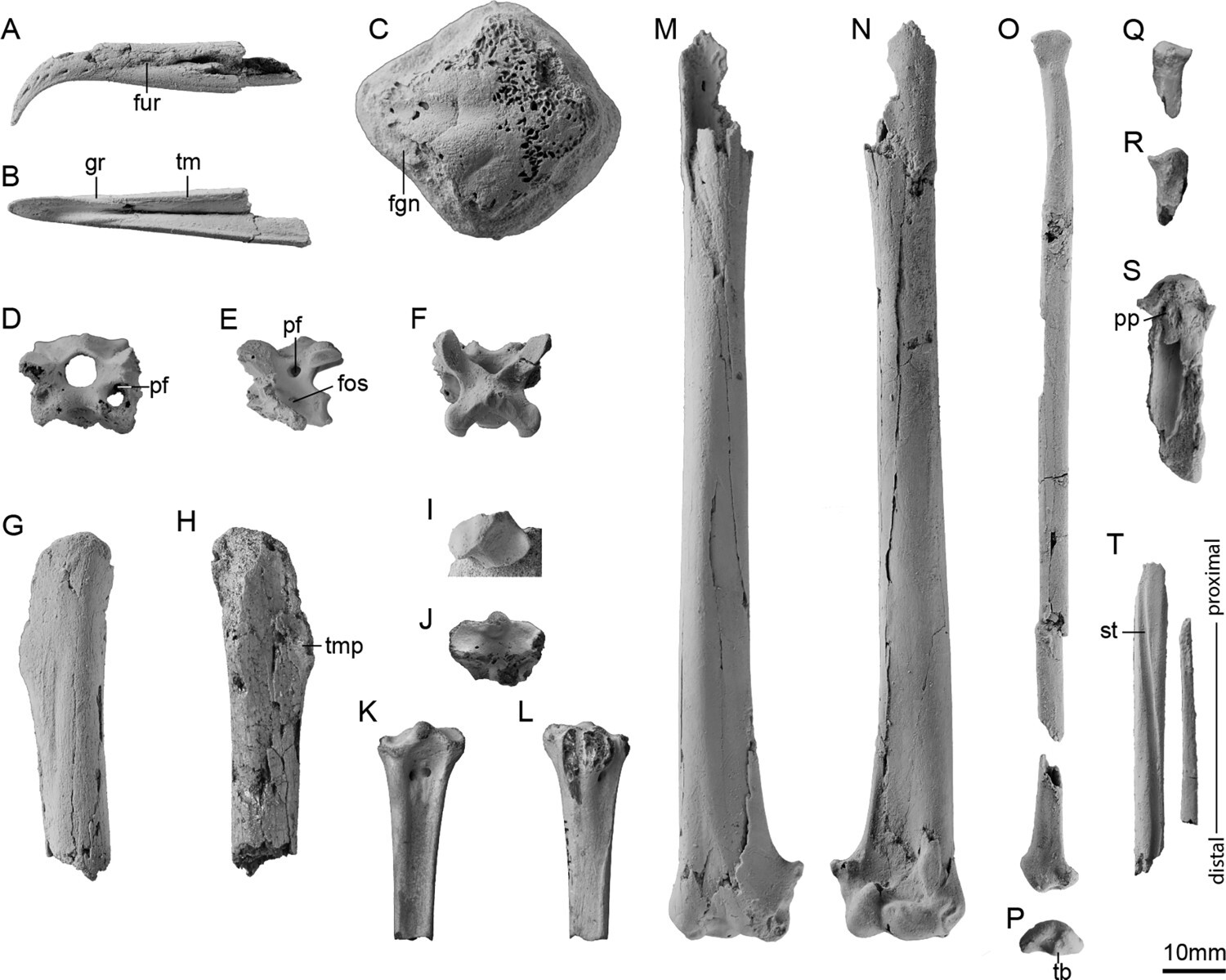
Holotype of Plotornis archaeonautes (see the full paper for extended caption)
Daniel Ksepka (Bruce Museum, Greenwich, Connecticut, USA) and colleagues have published open access in the Journal of the Royal Society of New Zealand on a new fossil albatross from New Zealand.
The paper’s abstract follows:
“Albatrosses are among the most intensely studied groups of living birds, yet their fossil record remains sparse. Despite modern albatrosses being more abundant and widespread in the Southern Hemisphere, the vast majority of fossil albatrosses identified to date come from Northern Hemisphere localities. Here, we describe Plotornis archaeonautes sp. nov., a new albatross species from the earliest Miocene that represents the earliest record of Procellariiformes in New Zealand and the earliest uncontroversial record of the clade Pan-Diomedeidae from the Southern Hemisphere. Phylogenetic analyses support the placement of Plotornis outside of the clade uniting all extant albatrosses. The new fossil reveals that stem lineage albatrosses were widespread by the onset of the Neogene. Although the humerus of Plotornis archaeonautes exhibits a short processus supracondylaris dorsalis, this early species may have possessed at least one of the unique ossifications associated with the patagial bracing system present in modern albatrosses.”
Reference:
Ksepka, D.T., Tennyson, A.J.D., Richards, M.D. & Fordyce, R.E. 2023. Stem albatrosses wandered far: a new species of Plotornis (Aves, Pan-Diomedeidae) from the earliest Miocene of New Zealand. Journal of the Royal Society of New Zealand. doi.org/10.1080/03036758.2023.2266390.
John Cooper, Emeritus Information Officer, Agreement on the Conservation of Albatrosses and Petrels, 23 November 2023

 Français
Français  English
English  Español
Español